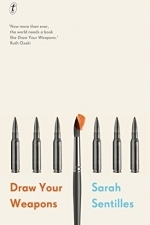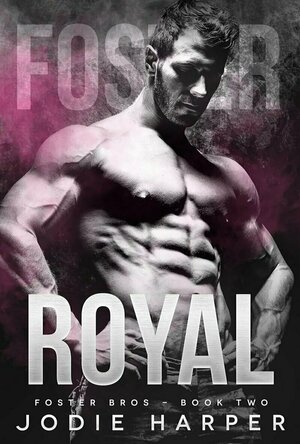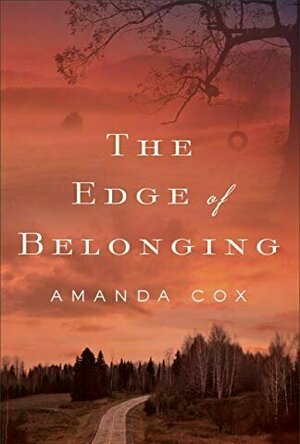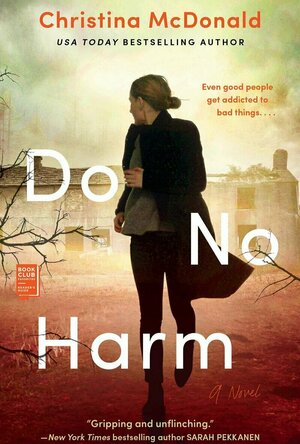Search
Search results
Kristy H (1252 KP) rated Defending Taylor in Books
Feb 13, 2018
Taylor has always grown up expecting the most of herself. After all, her father is a State Senator, and he and her mother have high expectations for their youngest daughter. At her private school, Taylor excels at school and is now captain of her soccer team. She has a close group of friends and a boyfriend, Ben. But all of that changes when Taylor makes a mistake--and gets kicked out of school. Now she's forced to start over at the local public school, which puts her dreams of Ivy League college in jeopardy. She joins the school's soccer team and tries to make things right with her family, but she can't deal with the secrets she's keeping, or the crushing disappointment of her entire family.
I can't help it: Kenneally's books are just enjoyable. This one leaves you in the dark in the beginning as to exactly what happened to Taylor--while frustrating, it builds suspense effectively and keeps you turning pages. Taylor's under so much pressure, but Kenneally easily captures the teen experience and the dramatic "life and death" sensation of being a teenager. Sometimes you roll your eyes at Taylor's actions, but you have to remember what it's like to be a teenager: you really do feel bad for the kid. Her parents put a crazy amount of pressure on Taylor, as do her perfect older twin siblings, and the book offers a good commentary about the burden and anxiety teens face these days regarding school and the college process. Plus, Taylor has the extra stress of her behavior being under the microscope of her father's senate campaign.
I was a little frustrated about how Taylor couldn't handle talking to her parents about her life, but could fall quickly and easily into a mature romantic relationship, but that seems to be par for the course for many YA novels these days. Besides, you can't help rooting for her relationship (and the cute guy). I enjoyed the message in this novel about taking a step back, finding yourself, and doing things your own way. I think it's a message that could benefit many teens. I also couldn't help but fall for Taylor, even if she was frustrating at times, and overall, I enjoyed this one. Kenneally has a way with words and writing teens--her books are worth the read.
I received a copy of this book from the publisher and Netgalley (thank you!); it is available everywhere as of 7/5.
<a href="http://justacatandabookatherside.blogspot.com/">My Blog</a> ~ <a href="https://www.facebook.com/justacatandabook/">Facebook</a>; ~ <a href="https://twitter.com/justacatandbook">Twitter</a>;
I can't help it: Kenneally's books are just enjoyable. This one leaves you in the dark in the beginning as to exactly what happened to Taylor--while frustrating, it builds suspense effectively and keeps you turning pages. Taylor's under so much pressure, but Kenneally easily captures the teen experience and the dramatic "life and death" sensation of being a teenager. Sometimes you roll your eyes at Taylor's actions, but you have to remember what it's like to be a teenager: you really do feel bad for the kid. Her parents put a crazy amount of pressure on Taylor, as do her perfect older twin siblings, and the book offers a good commentary about the burden and anxiety teens face these days regarding school and the college process. Plus, Taylor has the extra stress of her behavior being under the microscope of her father's senate campaign.
I was a little frustrated about how Taylor couldn't handle talking to her parents about her life, but could fall quickly and easily into a mature romantic relationship, but that seems to be par for the course for many YA novels these days. Besides, you can't help rooting for her relationship (and the cute guy). I enjoyed the message in this novel about taking a step back, finding yourself, and doing things your own way. I think it's a message that could benefit many teens. I also couldn't help but fall for Taylor, even if she was frustrating at times, and overall, I enjoyed this one. Kenneally has a way with words and writing teens--her books are worth the read.
I received a copy of this book from the publisher and Netgalley (thank you!); it is available everywhere as of 7/5.
<a href="http://justacatandabookatherside.blogspot.com/">My Blog</a> ~ <a href="https://www.facebook.com/justacatandabook/">Facebook</a>; ~ <a href="https://twitter.com/justacatandbook">Twitter</a>;
Goddess in the Stacks (553 KP) rated With the Fire on High in Books
Jul 25, 2019
With this book, Elizabeth Acevedo has solidified her position as one of my must-read authors. The Poet X was EXCELLENT, and this one is every bit as good, which is awesome, considering the wildly different formats of the two books. The Poet X was a novel in poem form, being the collected poems of a teenage girl. This book is a more traditional novel, written in prose. It loses none of the lyrical, enchanting quality of Acevedo's writing, however.
With The Fire On High centers on Emoni Santiago, a teenage mother struggling to graduate from high school on time. When a culinary arts elective is offered during her senior year of school, she takes it despite feeling like she should be spending her energy on her daughter's future instead of realizing her own dreams. The elective opens up an entire world for her, however, taking her from whipping up magic alone in her own kitchen to being recognized by talented chefs as having something special. The added hours spent on cooking begin to affect her other responsibilities, however, and Emoni struggles to balance everything in her life, a fight that is very nearly upended by the new, very cute boy who just transferred to her school.
Emoni deals admirably with the vast responsibilities of being a parent, the complications of her own somewhat unusual home life (she's been raised by her grandmother after her mother's death and her father's absence), and the pressures of high school. Especially a school where she spent freshman year pregnant. Rather luckily, her daughter's father goes to a different school, so at least she doesn't have to deal with him every day.
Similar to The Poet X, the book deals with the intersection of black American culture and Puerto Rican culture, a combination I've been seeing more and more in Young Adult. (Well, The Poet X was Dominican, but they have very similar worries, mostly revolving around feeling "not black enough.")
I loved Emoni, I loved Malachi (the cute transfer student), I loved Abuela and Baby Girl/Emma. I even didn't mind Tyrone too much. For being a player, he was trying to do right by his daughter. Acevedo has such a talent for characters. Angelica (Emoni's best friend) and her girlfriend were a delight, too.
If you see a book by Elizabeth Acevedo, pick it up. You won't be disappointed. I can't wait to pick up her next book, which appears to be another novel in verse called Clap When You Land, due out next year!
You can find all my reviews and more at http://goddessinthestacks.com
With The Fire On High centers on Emoni Santiago, a teenage mother struggling to graduate from high school on time. When a culinary arts elective is offered during her senior year of school, she takes it despite feeling like she should be spending her energy on her daughter's future instead of realizing her own dreams. The elective opens up an entire world for her, however, taking her from whipping up magic alone in her own kitchen to being recognized by talented chefs as having something special. The added hours spent on cooking begin to affect her other responsibilities, however, and Emoni struggles to balance everything in her life, a fight that is very nearly upended by the new, very cute boy who just transferred to her school.
Emoni deals admirably with the vast responsibilities of being a parent, the complications of her own somewhat unusual home life (she's been raised by her grandmother after her mother's death and her father's absence), and the pressures of high school. Especially a school where she spent freshman year pregnant. Rather luckily, her daughter's father goes to a different school, so at least she doesn't have to deal with him every day.
Similar to The Poet X, the book deals with the intersection of black American culture and Puerto Rican culture, a combination I've been seeing more and more in Young Adult. (Well, The Poet X was Dominican, but they have very similar worries, mostly revolving around feeling "not black enough.")
I loved Emoni, I loved Malachi (the cute transfer student), I loved Abuela and Baby Girl/Emma. I even didn't mind Tyrone too much. For being a player, he was trying to do right by his daughter. Acevedo has such a talent for characters. Angelica (Emoni's best friend) and her girlfriend were a delight, too.
If you see a book by Elizabeth Acevedo, pick it up. You won't be disappointed. I can't wait to pick up her next book, which appears to be another novel in verse called Clap When You Land, due out next year!
You can find all my reviews and more at http://goddessinthestacks.com
Gareth von Kallenbach (980 KP) rated J. Edgar (2011) in Movies
Aug 7, 2019
When I first heard about this movie, it intrigued me. When I heard that it starred Leonardo Dicaprio and was directed by Clint Eastwood, I was hooked. And I must say, that with a few small exceptions, the film definitely lived up to expectations for me.
J. Edgar is the story of Hoover’s rise to “power”, as told by J. Edgar Hoover. The movie takes place during three different time periods: when Hoover was just a budding employee of the Department of Justice and his involvement in the creation of the Bureau of Investigation; flash forward to Kennedy’s time in the office of the President of the United States of America, and finally during Nixon’s short-lived administration.
Throughout the film we see the influence that Hoover had in the government at the time. Of course, at the beginning of his career, he had very little. But through lies, deceit and manipulation he quickly became very influential. He began building his “personal files” very early on, which he used to blackmail and coerce government officials into many things, but most of all to keep his position as head of the FBI.
Throughout the film we see J. Edgar Hoover’s struggle with his controlling mother, his sexuality and his political opponents. His mother, Annie Hoover, played by Dame Judi Dench, saw Hoover as the savior of their family name. It had been disgraced in her eyes by his mentally ill father. She was his guiding voice in all areas of his life, including appearance, stature and his sexuality.
We see Hoover make advances towards Helen Gandy, played by Naomi Watts, who is a typist who becomes his personal assistant his entire life. Hoover’s demeanor around her is awkward at best, and she makes it very clear that she is focusing on her career. Shortly after the creation of the Bureau of Investigations he meets Clyde Tolson, played by Armie Hammer of The Social Network fame. It quickly becomes obvious that there is chemistry between these two.
The film takes us all the way to Hoover’s death and the many things he has accomplished, or perhaps did not accomplish, in between. Remember that I said that this a story of J. Edgar Hoover as told by the man himself. This plays into the film in a very great way. Overall, this is definitely a must-see film as it is a great drama sprinkled with spots of humor. I can see a trio of Oscar nominations with this film for Clint Eastwood in directing, and for Leonardo Dicaprio and Armie Hammer in acting.
J. Edgar is the story of Hoover’s rise to “power”, as told by J. Edgar Hoover. The movie takes place during three different time periods: when Hoover was just a budding employee of the Department of Justice and his involvement in the creation of the Bureau of Investigation; flash forward to Kennedy’s time in the office of the President of the United States of America, and finally during Nixon’s short-lived administration.
Throughout the film we see the influence that Hoover had in the government at the time. Of course, at the beginning of his career, he had very little. But through lies, deceit and manipulation he quickly became very influential. He began building his “personal files” very early on, which he used to blackmail and coerce government officials into many things, but most of all to keep his position as head of the FBI.
Throughout the film we see J. Edgar Hoover’s struggle with his controlling mother, his sexuality and his political opponents. His mother, Annie Hoover, played by Dame Judi Dench, saw Hoover as the savior of their family name. It had been disgraced in her eyes by his mentally ill father. She was his guiding voice in all areas of his life, including appearance, stature and his sexuality.
We see Hoover make advances towards Helen Gandy, played by Naomi Watts, who is a typist who becomes his personal assistant his entire life. Hoover’s demeanor around her is awkward at best, and she makes it very clear that she is focusing on her career. Shortly after the creation of the Bureau of Investigations he meets Clyde Tolson, played by Armie Hammer of The Social Network fame. It quickly becomes obvious that there is chemistry between these two.
The film takes us all the way to Hoover’s death and the many things he has accomplished, or perhaps did not accomplish, in between. Remember that I said that this a story of J. Edgar Hoover as told by the man himself. This plays into the film in a very great way. Overall, this is definitely a must-see film as it is a great drama sprinkled with spots of humor. I can see a trio of Oscar nominations with this film for Clint Eastwood in directing, and for Leonardo Dicaprio and Armie Hammer in acting.

Draw Your Weapons
Book
A single book might not change the world. But this utterly original meditation on art and war might...
philosophy social sciences

Holkham: The Social, Architectural and Landscape History of a Great English Country House
Book
Holkham Hall is a masterpiece of eighteenth-century Palladian architecture set in a large walled...
TravelersWife4Life (31 KP) rated The Edge of Belonging in Books
Feb 24, 2021
<a href="https://travelingwife4life.wordpress.com/2020/09/10/the-edge-of-belonging-lone-star-lit/">Travelers Wife 4 Life</a>
The Edge of Belonging by Amanda Cox was like a breath of fresh air amid uncertain times that cause you to reflect inward to who you really are. It is listed as a dual timeline, but I think it reads just like a complete story of getting to know a person from beginning to end, with some very thought-provoking moments.
<b>“What if this whole thing is really about finding your missing pieces?”</b>
This book and the characters in it made me go on a roller-coaster of thoughts, emotions, and feelings. I was hooked from the very beginning and read the book in one sitting because it was so good. I loved how Amanda Cox used the dialogue to make me feel as if I were in the story observing everything unfolding. She also used everyday life situations to convey hope for every situation tastefully touching on topics like depression, abandonment, abuse, PTSD, and death. It was masterfully done and quite hard to believe that this was her debut novel! (I cannot imagine what she will write after getting “practice” under her belt). The Edge of Belonging has some of the most poignant moments in it that I have ever read before in a book. Ivy Rose, Harvey James, Reese, and Pearl brought to light one of life’s most resounding questions… Who are you?
<b>“You are Braver than you know. And more Loved than you realize.”</b>
The plot is a dual timeline, I do not always like them because they can be kind of wonky, but wow, this one was done to perfection. It was really like looking through a window and watching the characters interact on the other side, definitely one of the best (if not the best) dual timelines I have ever had the pleasure of reading before. Interwoven with great landscape descriptions and interesting background on all the characters plus, the 20 years kept secrets… well this book is one I will be recommending for a long time to come.
While diving deep into the different characters' lives Amanda Cox managed to give many happy endings and bring you on a journey of discovery that I think everyone can relate to and enjoy. I highly recommend this book and give it 5 stars. Great job on your first book Amanda Cox, I cannot wait to see what you write next!
*I volunteered to read this book in return for my honest feedback. The thoughts and opinions expressed within are my own.
The Edge of Belonging by Amanda Cox was like a breath of fresh air amid uncertain times that cause you to reflect inward to who you really are. It is listed as a dual timeline, but I think it reads just like a complete story of getting to know a person from beginning to end, with some very thought-provoking moments.
<b>“What if this whole thing is really about finding your missing pieces?”</b>
This book and the characters in it made me go on a roller-coaster of thoughts, emotions, and feelings. I was hooked from the very beginning and read the book in one sitting because it was so good. I loved how Amanda Cox used the dialogue to make me feel as if I were in the story observing everything unfolding. She also used everyday life situations to convey hope for every situation tastefully touching on topics like depression, abandonment, abuse, PTSD, and death. It was masterfully done and quite hard to believe that this was her debut novel! (I cannot imagine what she will write after getting “practice” under her belt). The Edge of Belonging has some of the most poignant moments in it that I have ever read before in a book. Ivy Rose, Harvey James, Reese, and Pearl brought to light one of life’s most resounding questions… Who are you?
<b>“You are Braver than you know. And more Loved than you realize.”</b>
The plot is a dual timeline, I do not always like them because they can be kind of wonky, but wow, this one was done to perfection. It was really like looking through a window and watching the characters interact on the other side, definitely one of the best (if not the best) dual timelines I have ever had the pleasure of reading before. Interwoven with great landscape descriptions and interesting background on all the characters plus, the 20 years kept secrets… well this book is one I will be recommending for a long time to come.
While diving deep into the different characters' lives Amanda Cox managed to give many happy endings and bring you on a journey of discovery that I think everyone can relate to and enjoy. I highly recommend this book and give it 5 stars. Great job on your first book Amanda Cox, I cannot wait to see what you write next!
*I volunteered to read this book in return for my honest feedback. The thoughts and opinions expressed within are my own.
Kristy H (1252 KP) rated Do No Harm in Books
Feb 25, 2021
A dark look into how far a mother would go to save her child
After a tough childhood, where she was orphaned and spent time in foster care, Emma finally has the life she's always wanted. A successful doctor, she has a loving husband, Nate, and a young son, Josh. But that all stands to change when Josh, who is only five, is diagnosed with leukemia. Even with her hospital insurance, Josh's potential life-saving treatment will cost hundreds of thousands of dollars. Determined to save Josh no matter what, Emma makes the decision to sell opioids. Her choice puts her directly against Nate, a local police officer, who is investigating the death of a potential drug dealer. Emma will do anything to save Josh--does that include murder?
"I felt like I'd been dropped down a rabbit hole with the wolf sitting right outside. And the wolf was my husband."
This is a brutal dark read that pulls you into Emma and Nate's dilemma immediately. Personally, I found it hard to read about Josh's illness. I have a difficult time with books about kids being sick. But, McDonald is an excellent writer, and she does a wonderful job portraying stricken parents, pushed to the brink, who would do anything for their child. For Emma, it's turning to selling drugs. For Nate, it's working constantly to solve his current case, which means a promotion that could brings additional money for their family. The story is told from each of their perspectives, ratcheting up the tension with each chapter.
Emma, it seems, really has no limits on what she would do for Josh. McDonald makes the reader question: how far would you go to save your child? The book also offers a nuanced perspective on the opioid crisis, versus the usual "drugs bad" stance we get in many novels, which I appreciated. The entire novel makes you think and question standard perspectives in so many ways. It turns good versus evil and right versus wrong on its heels. And it offers a dark and insightful look into drug addiction and chronic pain and how families support each other (or don't).
Overall, this isn't an easy read, but it's a well-written and compelling one. It's timely, with an excellent perspective on the drug problems facing Americans and leaves the reader questioning much about right versus wrong. 4 stars.
I received a copy of this book from Gallery Books and Netgalley in return for an unbiased review. It is available on 2/16/2021.
"I felt like I'd been dropped down a rabbit hole with the wolf sitting right outside. And the wolf was my husband."
This is a brutal dark read that pulls you into Emma and Nate's dilemma immediately. Personally, I found it hard to read about Josh's illness. I have a difficult time with books about kids being sick. But, McDonald is an excellent writer, and she does a wonderful job portraying stricken parents, pushed to the brink, who would do anything for their child. For Emma, it's turning to selling drugs. For Nate, it's working constantly to solve his current case, which means a promotion that could brings additional money for their family. The story is told from each of their perspectives, ratcheting up the tension with each chapter.
Emma, it seems, really has no limits on what she would do for Josh. McDonald makes the reader question: how far would you go to save your child? The book also offers a nuanced perspective on the opioid crisis, versus the usual "drugs bad" stance we get in many novels, which I appreciated. The entire novel makes you think and question standard perspectives in so many ways. It turns good versus evil and right versus wrong on its heels. And it offers a dark and insightful look into drug addiction and chronic pain and how families support each other (or don't).
Overall, this isn't an easy read, but it's a well-written and compelling one. It's timely, with an excellent perspective on the drug problems facing Americans and leaves the reader questioning much about right versus wrong. 4 stars.
I received a copy of this book from Gallery Books and Netgalley in return for an unbiased review. It is available on 2/16/2021.

Royal (Foster Bros #2)
Book
Royal When Royal wakes up in a hospital bed, confusion and then panic have him frantically...
Contemporary MM Romance
Hazel (1853 KP) rated Touching the Rock: An Experience of Blindness (Notes on Blindness Film Tie-in) in Books
May 23, 2017
Eye-opener (if you pardon the pun)
I received this book for free through Goodreads First Reads.
It is not often a blind man writes a book, and “write” is a word used due to the lack of a better. John M. Hull gradually lost his sight, registering as blind in 1980, a couple of days before the birth of his son. Although anticipating the event, John struggled to come to terms with his new circumstances and adjust to a new way of living. From 1983 through to 1985, John recorded his thoughts on tape, in diary form, as a way to ascertain and understand his predicament. Originally titled Touching the Rock (1990), John’s book has been republished as Notes on Blindness after the release of the film of the same name.
Initially, John made recordings every day, dictating the everyday occurrences he encountered. Amazingly, despite his disability, John was able to continue as a university lecturer and delve deeper into the world of theology. The way John thinks things through as he speaks reflects his academic abilities. Although he may have despaired at the thoughts of not being able to see his children, he had a fairly positive outlook on life.
John’s thought capacity and religious ideology are evident in his assemblage of diary entries. As a blind person, he learns to see the world in an alternative way, and often feels closer to God as a result. Through these new experiences, John begins to see the light despite the darkness.
The metaphorical descriptions of blindness help the reader to understand the horror and difficulties not being able to see visually provokes. This is heightened by John’s recordings of the bad dreams he often suffers, in which he is able to see. His fixations on these dreams are assumedly a fascination with visual imagery, which he does not have access to in his waking life.
It is hard not feel sorry for John as he reports the conversations he has with his young children. The effort to communicate and play with them is far greater than a seeing parent. Remarkably, as John begins to adjust to his new lifestyle, his children take the situation in their stride.
Notes on Blindness is also an educational narrative for those without sight problems. John explains the things other people, in attempts to be helpful, do that result in making things far more confusing for John as he tries to navigate his way from one place to another. Despite what most think, blind people are fairly good at walking routes they are familiar with, and, with the help of a stick, can safely travel through new areas. Once people start shouting instructions, it is difficult to pay attention to the location and listen to everyone else at the same time.
John’s voice is extremely articulate, and his thoughts profound, which may suggest heavy editing when compiling the recordings into written form. However, as he is an academician, his eloquence of speech does not feel forced or faked.
Notes on Blindness remains the same as the original publication but with the added inclusion of an introduction by Cathy Rentzenbrink, and an epilogue by his wife Marilyn, written in 2016, a year after his death. These, the latter in particular, provide an insight into how John’s blindness affected those around him and emphasises what a truly remarkable man he was.
Of the many memoirs available on bookshelves today, Notes on Blindness is a truly unique publication. It is not telling a story, or recounting a well-lived life, but gives great insight into the world of the blind. As John’s thoughts were not originally recorded with intention of being available to everyone, they are all the more personal and honest, provoking emotion and providing the reader with a new way of seeing. It is a book that will stay with you for a very long time.
It is not often a blind man writes a book, and “write” is a word used due to the lack of a better. John M. Hull gradually lost his sight, registering as blind in 1980, a couple of days before the birth of his son. Although anticipating the event, John struggled to come to terms with his new circumstances and adjust to a new way of living. From 1983 through to 1985, John recorded his thoughts on tape, in diary form, as a way to ascertain and understand his predicament. Originally titled Touching the Rock (1990), John’s book has been republished as Notes on Blindness after the release of the film of the same name.
Initially, John made recordings every day, dictating the everyday occurrences he encountered. Amazingly, despite his disability, John was able to continue as a university lecturer and delve deeper into the world of theology. The way John thinks things through as he speaks reflects his academic abilities. Although he may have despaired at the thoughts of not being able to see his children, he had a fairly positive outlook on life.
John’s thought capacity and religious ideology are evident in his assemblage of diary entries. As a blind person, he learns to see the world in an alternative way, and often feels closer to God as a result. Through these new experiences, John begins to see the light despite the darkness.
The metaphorical descriptions of blindness help the reader to understand the horror and difficulties not being able to see visually provokes. This is heightened by John’s recordings of the bad dreams he often suffers, in which he is able to see. His fixations on these dreams are assumedly a fascination with visual imagery, which he does not have access to in his waking life.
It is hard not feel sorry for John as he reports the conversations he has with his young children. The effort to communicate and play with them is far greater than a seeing parent. Remarkably, as John begins to adjust to his new lifestyle, his children take the situation in their stride.
Notes on Blindness is also an educational narrative for those without sight problems. John explains the things other people, in attempts to be helpful, do that result in making things far more confusing for John as he tries to navigate his way from one place to another. Despite what most think, blind people are fairly good at walking routes they are familiar with, and, with the help of a stick, can safely travel through new areas. Once people start shouting instructions, it is difficult to pay attention to the location and listen to everyone else at the same time.
John’s voice is extremely articulate, and his thoughts profound, which may suggest heavy editing when compiling the recordings into written form. However, as he is an academician, his eloquence of speech does not feel forced or faked.
Notes on Blindness remains the same as the original publication but with the added inclusion of an introduction by Cathy Rentzenbrink, and an epilogue by his wife Marilyn, written in 2016, a year after his death. These, the latter in particular, provide an insight into how John’s blindness affected those around him and emphasises what a truly remarkable man he was.
Of the many memoirs available on bookshelves today, Notes on Blindness is a truly unique publication. It is not telling a story, or recounting a well-lived life, but gives great insight into the world of the blind. As John’s thoughts were not originally recorded with intention of being available to everyone, they are all the more personal and honest, provoking emotion and providing the reader with a new way of seeing. It is a book that will stay with you for a very long time.
Hazel (1853 KP) rated Notes on Blindness: A Journey Through The Dark in Books
Dec 17, 2018
<I>I received this book for free through Goodreads First Reads.</I>
It is not often a blind man writes a book, and “write” is a word used due to the lack of a better. John M. Hull gradually lost his sight, registering as blind in 1980, a couple of days before the birth of his son. Although anticipating the event, John struggled to come to terms with his new circumstances and adjust to a new way of living. From 1983 through to 1985, John recorded his thoughts on tape, in diary form, as a way to ascertain and understand his predicament. Originally titled <I>Touching the Rock</I> (1990), John’s book has been republished as <I>Notes on Blindness</i> after the release of the film of the same name.
Initially, John made recordings every day, dictating the everyday occurrences he encountered. Amazingly, despite his disability, John was able to continue as a university lecturer and delve deeper into the world of theology. The way John thinks things through as he speaks reflects his academic abilities. Although he may have despaired at the thoughts of not being able to see his children, he had a fairly positive outlook on life.
John’s thought capacity and religious ideology are evident in his assemblage of diary entries. As a blind person, he learns to see the world in an alternative way, and often feels closer to God as a result. Through these new experiences, John begins to see the light despite the darkness.
The metaphorical descriptions of blindness help the reader to understand the horror and difficulties not being able to see visually provokes. This is heightened by John’s recordings of the bad dreams he often suffers, in which he is able to see. His fixations on these dreams are assumedly a fascination with visual imagery, which he does not have access to in his waking life.
It is hard not feel sorry for John as he reports the conversations he has with his young children. The effort to communicate and play with them is far greater than a seeing parent. Remarkably, as John begins to adjust to his new lifestyle, his children take the situation in their stride.
<i>Notes on Blindness</i> is also an educational narrative for those without sight problems. John explains the things other people, in attempts to be helpful, do that result in making things far more confusing for John as he tries to navigate his way from one place to another. Despite what most think, blind people are fairly good at walking routes they are familiar with, and, with the help of a stick, can safely travel through new areas. Once people start shouting instructions, it is difficult to pay attention to the location and listen to everyone else at the same time.
John’s voice is extremely articulate, and his thoughts profound, which may suggest heavy editing when compiling the recordings into written form. However, as he is an academician, his eloquence of speech does not feel forced or faked.
<i>Notes on Blindness</i> remains the same as the original publication but with the added inclusion of an introduction by Cathy Rentzenbrink, and an epilogue by his wife Marilyn, written in 2016, a year after his death. These, the latter in particular, provide an insight into how John’s blindness affected those around him and emphasises what a truly remarkable man he was.
Of the many memoirs available on bookshelves today,<i> Notes on Blindness</i> is a truly unique publication. It is not telling a story, or recounting a well-lived life, but gives great insight into the world of the blind. As John’s thoughts were not originally recorded with intention of being available to everyone, they are all the more personal and honest, provoking emotion and providing the reader with a new way of seeing. It is a book that will stay with you for a very long time.
It is not often a blind man writes a book, and “write” is a word used due to the lack of a better. John M. Hull gradually lost his sight, registering as blind in 1980, a couple of days before the birth of his son. Although anticipating the event, John struggled to come to terms with his new circumstances and adjust to a new way of living. From 1983 through to 1985, John recorded his thoughts on tape, in diary form, as a way to ascertain and understand his predicament. Originally titled <I>Touching the Rock</I> (1990), John’s book has been republished as <I>Notes on Blindness</i> after the release of the film of the same name.
Initially, John made recordings every day, dictating the everyday occurrences he encountered. Amazingly, despite his disability, John was able to continue as a university lecturer and delve deeper into the world of theology. The way John thinks things through as he speaks reflects his academic abilities. Although he may have despaired at the thoughts of not being able to see his children, he had a fairly positive outlook on life.
John’s thought capacity and religious ideology are evident in his assemblage of diary entries. As a blind person, he learns to see the world in an alternative way, and often feels closer to God as a result. Through these new experiences, John begins to see the light despite the darkness.
The metaphorical descriptions of blindness help the reader to understand the horror and difficulties not being able to see visually provokes. This is heightened by John’s recordings of the bad dreams he often suffers, in which he is able to see. His fixations on these dreams are assumedly a fascination with visual imagery, which he does not have access to in his waking life.
It is hard not feel sorry for John as he reports the conversations he has with his young children. The effort to communicate and play with them is far greater than a seeing parent. Remarkably, as John begins to adjust to his new lifestyle, his children take the situation in their stride.
<i>Notes on Blindness</i> is also an educational narrative for those without sight problems. John explains the things other people, in attempts to be helpful, do that result in making things far more confusing for John as he tries to navigate his way from one place to another. Despite what most think, blind people are fairly good at walking routes they are familiar with, and, with the help of a stick, can safely travel through new areas. Once people start shouting instructions, it is difficult to pay attention to the location and listen to everyone else at the same time.
John’s voice is extremely articulate, and his thoughts profound, which may suggest heavy editing when compiling the recordings into written form. However, as he is an academician, his eloquence of speech does not feel forced or faked.
<i>Notes on Blindness</i> remains the same as the original publication but with the added inclusion of an introduction by Cathy Rentzenbrink, and an epilogue by his wife Marilyn, written in 2016, a year after his death. These, the latter in particular, provide an insight into how John’s blindness affected those around him and emphasises what a truly remarkable man he was.
Of the many memoirs available on bookshelves today,<i> Notes on Blindness</i> is a truly unique publication. It is not telling a story, or recounting a well-lived life, but gives great insight into the world of the blind. As John’s thoughts were not originally recorded with intention of being available to everyone, they are all the more personal and honest, provoking emotion and providing the reader with a new way of seeing. It is a book that will stay with you for a very long time.





